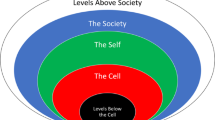Abstract
As genome mapping technology uncovers the roots of pathologic and physiologic human functioning, important questions are brought to the fore concerning our conceptualization of ideas such as disease, treatment, and enhancement. In 1985, Norman Daniels proposed a normal-functioning model that expands John Rawls’ theory of justice to obligate the provision of health care based on the constraints disease places on individual opportunity, but also limits the commitment of the medical establishment by focusing on states that represent deviations from normal human function. While some argue that the boundaries of medical institutions’ commitment to provide services within a normal-functioning model are arbitrary, the degree to which these concerns truly threaten the framework is often exaggerated in special cases put forward in the literature. Furthermore, the normal-functioning model provides a comprehensive basis for agreement in discussions of medicine’s commitment to the demands of social justice where resources are limited and avoids the dangerous overextension of the healthcare system and medicalization to which more expansive models are exposed.
Similar content being viewed by others
References
Barclay, L. (2009). Egalitarianism and responsibility in the genetic future. Journal of Medicine and Philosophy, 34(2), 119–134.
Boorse, C. (1975). On the distinction between disease and illness. Philosophy and Public Affairs, 5(1), 49–68.
Buchanan, A. E. (2000). From chance to choice: Genetics and justice. Cambridge: Cambridge University Press.
Daniels, N. (2000). Normal Functioning and the Treatment-Enhancement Distinction. Cambridge Quarterly of Healthcare Ethics, 9.03.
Daniels, N. (2001). Justice, health, and healthcare. American Journal of Bioethics, 1(2), 2–16.
Daniels, N. (2008). Just Health. Cambridge, MA: Cambridge University Press.
Holtug, N. (2009). Equality and the treatment-enhancement distinction. Bioethics, 25(3), 137–144.
McGee, G. (2000). Ethical Issues in Enhancement: An Introduction. Cambridge Quarterly of Healthcare Ethics, 9.03.
Murray, T. H. (2002). Reflections on the ethics of genetic enhancement. Genetics in Medicine, 4(Supplement), 27S–32S.
Rawls, J. (1971). The basic structure as subject. American Philosophical Quarterly, 14(2), 159–165.
Steinbock, B., Arras, J. D., & London, A. J. (2003). Moral reasoning in the medical context. In B. Steinbock, J. D. Arras, & A. J. London (Eds.), Ethical issues in modern medicine (6th Edn.) (pp. 1–41). Boston: McGraw Hill.
Author information
Authors and Affiliations
Corresponding author
Rights and permissions
About this article
Cite this article
Huggins, J., Simmerling, M. Normal Functioning and the Treatment/Enhancement Distinction: An Opportunity Based Assessment. J Relig Health 53, 1214–1222 (2014). https://doi.org/10.1007/s10943-014-9882-7
Published:
Issue Date:
DOI: https://doi.org/10.1007/s10943-014-9882-7



